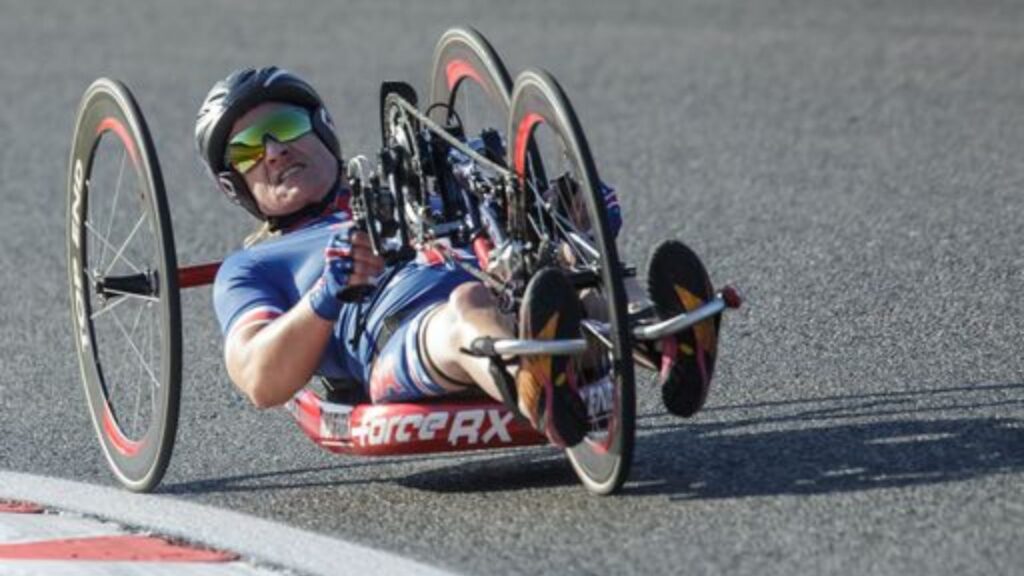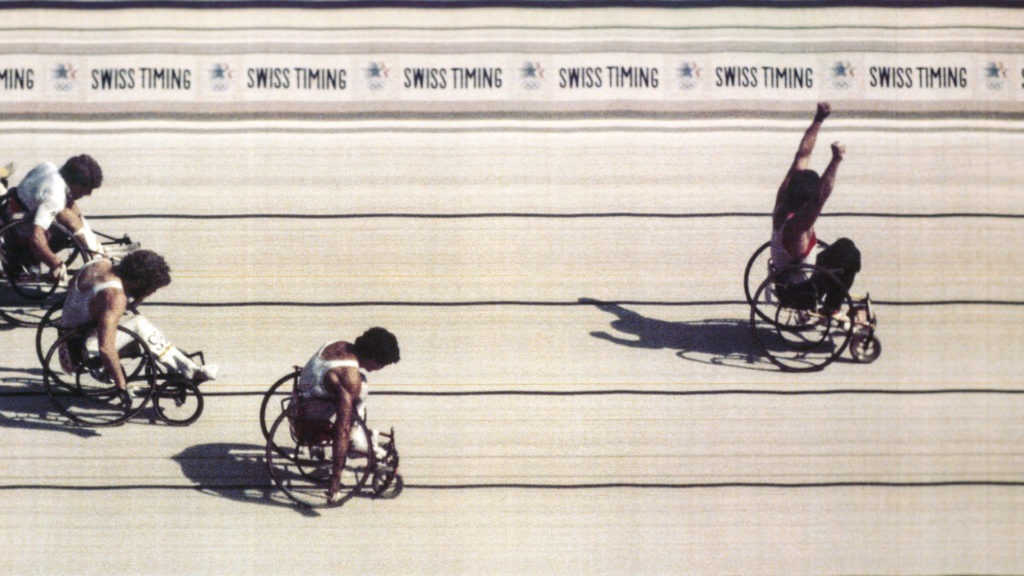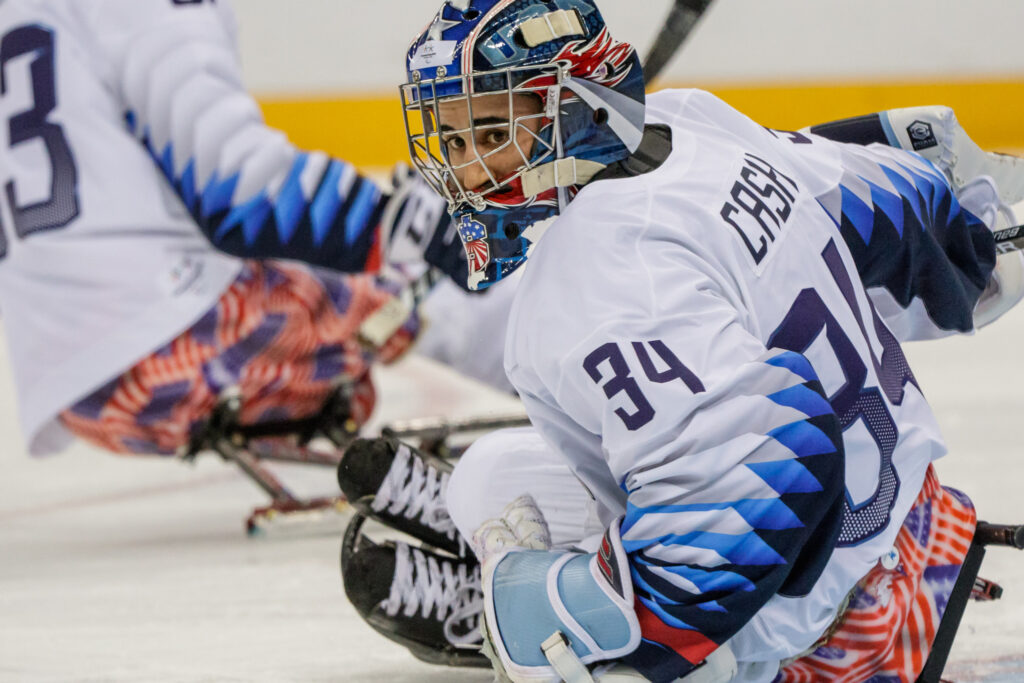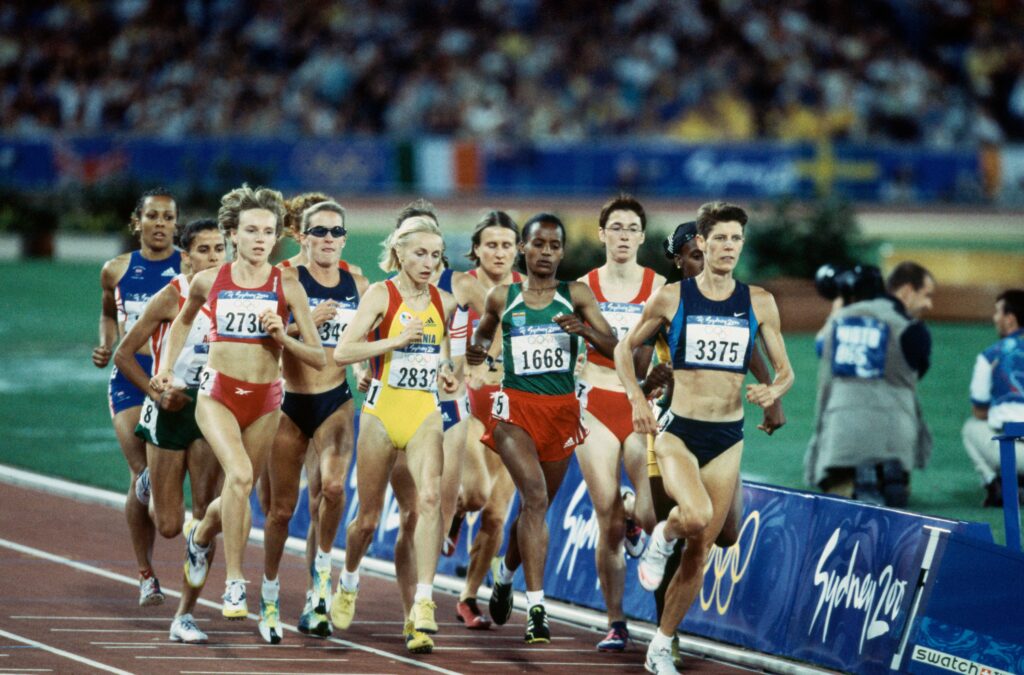Let there be no doubt: Michael Johnson was one of the world’s best sprinters – setting world records in both the 200- and 400-meter races and dominating the track for nearly a decade.
The only things that slowed down Johnson – and kept him from owning more than his four Olympic gold medals – were beyond his control on the track.
Two weeks before the Barcelona 1992 Olympic Games, Johnson suffered from food poisoning that caused him to lose weight and threw off his training. The gold medal favorite in the 200, Johnson did not even qualify for the event final; his only gold medal in Barcelona came in the 4×400 relay.
Four years later, more experienced and comfortable running in his own country in the Atlanta 1996 Olympic Games, Johnson was dominant as he pulled off an unprecedented golden double. In his custom-made gold shoes, Johnson won the 400-meter race in an Olympic record and captured the 200-meter race as he shattered the world record by .34 seconds, the largest improvement ever in the 200 and a mark that would stand for 12 years.
The only thing that kept Johnson for getting another gold medal was a pulled muscle that prevented him from running in the 4×400 relay.
At the Sydney 2000 Olympic Games, the 33-year-old Johnson became the first man to repeat as an Olympic gold medalist in the 400 and the oldest Olympic track and field gold medalist at a distance of less than 5,000 meters. (He did not qualify for the 200 after getting injured at the U.S. Olympic Trials.) Johnson also ran on 4×400 relay team that finished first but later forfeited its gold medals after other team members were found to have used performance-enhancing drugs.
“The drama of the Olympic Games is incredible and I do have great memories of representing the United States in 1992, 1996 and 2000,” Johnson later wrote. “I have great memories of going to Barcelona, in my first Olympic team, of being the focus of the Atlanta Games, and of Sydney, where I knew the Games would be my last.”
After retiring from competition, Johnson worked as a track and field analyst. He was a torch bearer prior to the London 2012 Olympic Games.












